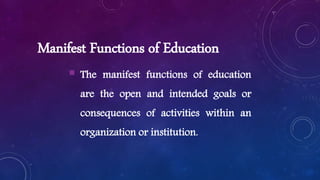Is the Word Manifest in the Bible? Unveiling Truths
Yes, the word “manifest” is found in the Bible. It is used in various contexts throughout the scriptures, particularly in the New Testament.
The term “manifest” is used to convey the idea of making something evident, visible, or known. It appears in different forms such as “manifestation” or “manifested” and is often associated with the revealing of spiritual truths, the presence of God, or the expression of divine attributes.
The concept of manifesting is intertwined with the teachings and narratives in the Bible, illustrating the tangible demonstration of God’s power, love, and purpose in the world. Understanding the biblical usage of “manifest” can provide insights into the clarity, revelation, and fulfillment of God’s will as depicted in the sacred texts.
Origins Of ‘manifest’ In Scripture
The word ‘manifest’ is found in the Bible, and its origins can be traced back to ancient languages. In Hebrew, the word ‘manifest’ is often translated as ‘ra’ah’, meaning to see or perceive. In Greek, the word used is ‘phaneroo’, which also denotes making something visible or evident.
The first appearance of ‘manifest’ in biblical texts can be found in the book of Numbers, where it is used to describe how God revealed Himself to Moses and the Israelites through miraculous signs and wonders.
In the New Testament, the concept of ‘manifestation’ is frequently associated with the coming of Jesus Christ, who is described as the visible representation of the invisible God. The apostle Paul often speaks of the manifestation of God’s grace and love through Jesus’ life, death, and resurrection.
Overall, the word ‘manifest’ in the Bible signifies the act of making something known, visible, or evident, whether it be God’s presence, His power, or His attributes. It serves as a reminder of the divine revelation and the ways in which God chooses to make Himself known to humanity.
Manifestation Concepts In The Old Testament
In the Old Testament, the concept of manifestation is evident in the form of divine appearances known as theophanies. These were appearances of God to His people, such as the burning bush that Moses encountered in Exodus 3. Theophanies served to reveal God’s character and to communicate His will to His people.
Another manifestation concept in the Old Testament is prophetic visions. Prophets such as Isaiah, Ezekiel, and Daniel received visions from God that conveyed His messages and revealed His plans for the future. These visions were often symbolic and required interpretation to understand their meanings.
Overall, the concept of manifestation in the Bible serves to reveal God’s character, communicate His will, and provide insight into His plans for the future.
The New Testament And ‘manifest’ Ideals
In the New Testament, the word ‘manifest’ is frequently associated with the teachings of Jesus Christ. He is seen as a manifestation of God’s love and grace to humanity. The apostolic teachings emphasize the revelation of God’s will through Jesus Christ, highlighting the clear and evident display of divine power and purpose. The concept of ‘manifest’ in the Bible underscores the visible and tangible presence of God’s plan for salvation, offering believers a profound sense of assurance and hope in the promises of Scripture.
Comparative Analysis With Other Translations
Comparing different translations of the Bible can provide valuable insights into the use of the word “manifest.” Various versions of the Bible may have different renderings of this term, highlighting the importance of understanding the nuances behind each translation. By examining the variations of “manifest” in different versions, we can explore the theological implications of the choices made by translators.
One version may use “reveal” instead of “manifest,” emphasizing the act of making something known or visible. Another translation might opt for “make clear” or “display,” underscoring the idea of making something evident or understandable. These variations shed light on the multifaceted nature of the term “manifest” and its application in different contexts.
The choice of translation can have significant theological implications, as it shapes our understanding of divine revelation and the communication of God’s message to humanity. Exploring these variations allows us to delve deeper into the biblical text and gain a richer appreciation for the intricacies of language and interpretation.
Manifest In Prayers And Liturgy
Manifest is a term used in prayers and liturgy, denoting the emergence of the divine or supernatural presence. In liturgical practices, the term is used to describe the visible appearance of the divine, as in the manifestation of God in the transfiguration of Jesus. Contemporary worship also employs the concept of manifestation, with an emphasis on the manifestation of the Holy Spirit in the congregation. Liturgically, the term ‘manifest’ is often used in the context of the Epiphany, signifying the manifestation of Christ to the Magi. Overall, the term ‘manifest’ holds great significance in religious practices, signifying the emergence of the divine presence in the physical world.
| Liturgical uses of the term ‘manifest’ |
|---|
| Describes the visible appearance of the divine |
| Signifies the manifestation of Christ to the Magi during Epiphany |
Manifestation In Christian Life
Manifestation plays a significant role in the Christian life, particularly when it comes to spiritual gifts and the demonstration of faith. In the Bible, various passages highlight the importance of manifesting one’s faith through actions and deeds.
When believers are filled with the Holy Spirit, they are empowered to manifest spiritual gifts such as prophecy, healing, and speaking in tongues. These gifts are not only meant for personal edification but also for the benefit of the entire body of Christ.
Furthermore, manifesting faith involves living out one’s beliefs in a tangible way. It means putting trust in God and demonstrating it through actions of love, kindness, and compassion towards others. By doing so, believers become a living testimony of their faith, allowing others to witness the transformative power of the Gospel.
In modern Christian movements, the concept of manifesting faith has been further explored through ‘manifest’ theology. This theology emphasizes the belief that believers have the ability to manifest blessings, prosperity, and healing through their faith and positive confession.
In conclusion, manifesting faith and spiritual gifts are integral aspects of the Christian life. By actively demonstrating our faith through actions and relying on the power of the Holy Spirit, we can be a light in the world and impact others for the glory of God.
Criticisms And Controversies
|
Theological debates have sparked over the interpretation of the term “manifest” in the Bible. Critics argue about its true meaning and significance in scripture. Misinterpretations of this word have led to controversies within religious circles. Some suggest that its modern usage has strayed from its original biblical context. Debates continue on the appropriate application of the term in theological discussions. |
Personal Reflection And Application
Exploring the concept of manifest presence in the Bible can bring deep spiritual insights. This idea can be applied in daily life through prayer and meditation. By acknowledging the presence of God, individuals can experience a sense of peace and guidance. Reflecting on scriptures that mention manifestation can deepen one’s faith and understanding. This concept encourages believers to remain aware of God’s constant presence in their lives.
Conclusion
The word “manifest” is indeed present in the Bible, with various meanings and contexts. Understanding its significance in biblical teachings can enrich our spiritual understanding and connection with the divine. Exploring the deeper implications of this term can lead to profound insights and revelations in our faith journey.




